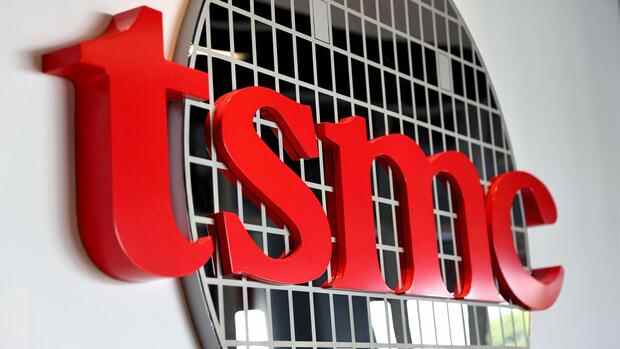In the months from July to the end of September, the company earned around 14 percent more than a year earlier and also more than analysts expected.
(Photo: Reuters)
Tokyo The world’s largest contract manufacturer of semiconductors TSMC confirmed the construction of its first chip factory in Japan on Thursday. The Taiwanese company is responding to an invitation from the Japanese government, which, like the European Union, the USA and China, would like to strengthen domestic chip production.
The company is also considering building a plant in Germany. But Japan appears to be higher on the Taiwanese priority list. As TSMC boss CC Wei explained in a teleconference, the company receives financial support from both its customers and the Japanese government.
According to Japanese media, the plant will cost $ 7 billion and start production in 2023. It will focus on 22-nanometer and 28-nanometer specialty technology that can be used for many types of chips from image sensors to microcontrollers in cars, according to Wei.
The global chip crisis demonstrates how urgently the internationalization of TSMC production is viewed abroad. Not only the auto industry suffers from production downtimes, but also smartphone manufacturers like Apple. Because TSMC has the largest share of the world market for small chips with five-nanometer structures. And TSMC boss Wei destroyed any hope of an early end to the delivery bottlenecks. The capacity will remain tight for the rest of this year and throughout 2022, said Wei.
Top jobs of the day
Find the best jobs now and
be notified by email.
TSMC breaks with its own tradition in Japan
For TSMC, the Japanese plant is one of the first factories in the old industrial nations and the first in 20 years with equity investments from other companies. The company also manufactures semiconductors in China. Basically, TSMC has focused its production in Taiwan. However, the higher TSMC’s market share became, the more critical was the high concentration of chip production on the island abroad, which was militarily threatened by China, and not just since the outbreak of the chip crisis.
China, which is very dependent on supplies from Taiwan, was the first country to attempt to set up its own chip industry. Then, under US President Donald Trump, the USA, Europe and Japan followed with their own industrial policy funding programs to strengthen their supply chains.
TSMC first gave in to pressure from the US, one of its key customers. The company even wants to build a factory there that will produce chips with structures as small as five nanometers. But Japan quickly became an important partner for TSMC, and not just because of government subsidies.
Japan’s special role in the TSMC chip strategy
First TSMC agreed to set up research centers in Japan. The technology leader wants to develop materials and new chip technologies with Japanese corporations. As a former chip superpower, Asia’s oldest industrial nation still has a lot of know-how in chip manufacturing and materials science. Now the chip factory follows.
Just as requested by the government, it focuses on chips that are particularly important to Japan’s economy. And those are not the high-performance processors for smartphones. The country still has cell phone manufacturers. But the former cell phone giants such as Sony or Sharp only eke out a niche existence. Instead, manufacturers of industrial robots, car and machine builders as well as suppliers of electronic components and sensors form the strategic basis of Japan AG.
These companies are also willing to invest money in TSMC’s facility to improve their security of supply. According to the business newspaper “Nikkei”, the camera manufacturer Sony, but also Toyota’s main supplier Denso, are among the possible partners.
Financially, the Taiwanese could certainly manage the investment on their own. On Thursday, TSMC posted new record sales for the past third quarter. The chip boom boosted sales by 11 percent year-on-year to 415 billion Taiwan dollars (12.7 billion euros).
Net profit rose 14 percent to 156 billion Taiwan dollars (4.8 billion euros), and the trend is rising. For the current quarter, CEO Wei predicted up to 6.7 percent more sales. Still, the involvement of local governments and partners is considered important to enable TSMC to reduce its own costs.
For a long time, the management was reluctant to decentralize production, pointing out that higher costs would reduce competitiveness. At the same time, the company is coming under pressure from advances by chip giants such as Intel in the USA and South Korea’s Samsung into contract manufacturing. But the longer the US and China wage their technology war, the more important geostrategic factors become for the organization of the supply chain. And TSMC is finding it increasingly difficult to escape the pressure.
More: China’s saber rattle makes Taiwan the biggest chip supply risk
